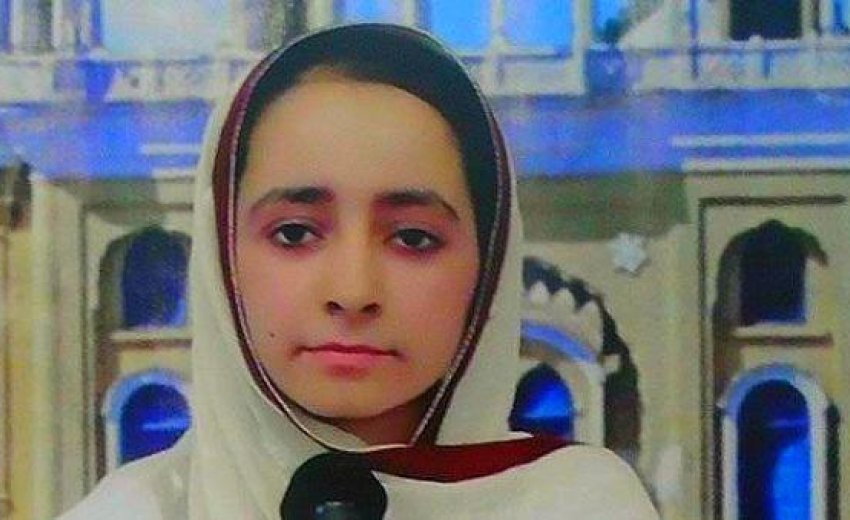
Manbir Kaur PHOTO: HINDUSTAN TIMES
“I had never expected the overwhelming response that we received from my relatives, both Sikhs and non-Sikh, to my daughter’s success in the secondary school certificate examinations,” says father of Munbeer Kaur, a Sikh girl from Nankana Sahib who has secured more marks in a matriculation exam than any other Sikh student in the country’s history.
Giyani Prem Singh said that for him, Kaur was more valuable than his son. “She has earned us pride and honour,” he said.
Kaur, 15, secured 1,035 marks in the science group out of 1,100. The first position holder in the Lahore Board of Intermediate and Secondary’s examination had bagged 1,080 marks. Nankana Sahib comes under the Lahore BISE’s jurisdiction.
Read: Matric results: Girls bag top positions in SSC examinations
Kaur, who wants to become a doctor, has enrolled at a private college on Mangtanwala Road near Nankana Sahib. Her father, a grade 7 granthi, said he lacked resources to send her to a college in Lahore.
Singh, one of three granthis at Gurdawara Nankana Sahib, said the college had granted her admission without charging any fee. “They will charge Rs10 only after every two months.”
Kaur is the eldest among his six children. He says he has a son before Kaur but he died at the age of three months. “I consider her my son. I am doing whatever I can do for her,” he said.
Singh says Kaur also does keertan sewa at the gurdwara along with the jathas. He says his other daughters are studying in grades 4, 5 and 6. His only son is in grade 2.
Read: High achievers: Female candidates clinch all the top positions in matric exams
Singh has studied up to intermediate and his wife is a matriculate. Calling her bookish, he says she has never taken private tuition. She studied for grade 9 at the Guru Nanak Gee Public Model High School, Nankana Sahib, a Sikh community school. She did matriculation from Hira Public Model High School, Nankana Sahib.
Singh says he will send her to Lahore for further studies once she completed her college.
Kalian Singh, an uncle of Kaur’s, says he was the first professor from the Sikh community in Pakistan. “I teach at the Government Gujranwala College and live in the same house where Giyani lives,” says Kalian Singh, a PhD scholar at University of the Punjab.
He says his cousin, Harcharan Singh, was the first Sikh major in Pakistan Army. His nephew, Gulab Singh, is the first Sikh traffic warden. “Dr Mimpal Singh, a senior registrar at Mayo Hospital, is the first Sikh doctor in Pakistan,” he said.
200 Sikh families doing their bit for daughters
Asked
about the concern over education among girls in Pakistan, Giani Prem
Singh said, “I think women should be treated no differently from men as
they have as much a right to pursue their dreams. If they can run homes
so efficiently, why shouldn’t they be allowed to conquer the world
outside?”
He said about 200 Sikh families staying in Nankana Sahib were doing their bit to encourage their daughters to give in their best. “Manbir’s cousins have also done well in the Class 10 exams,” he added.
Meanwhile, in order to recognise Manbir’s effort and inspire the
community’s youth to excel, the Pakistan Sikh Gurdwara Parbandhak
Committee honoured her with a siropa (robe of honour) after the result
was announced.
Inspiration for girls
According
to the 2010 census, there are only 15,000 Sikhs in Pakistan, a drastic
drop from the more than 50,000 members of the community not so long ago.
Migration due to atrocities against the minority community is seen as
the main reason for the dwindling numbers. Girls from the community have
been the target of forcible conversion to Islam for marriage with more
than 100 such cases reported in the past three years.
